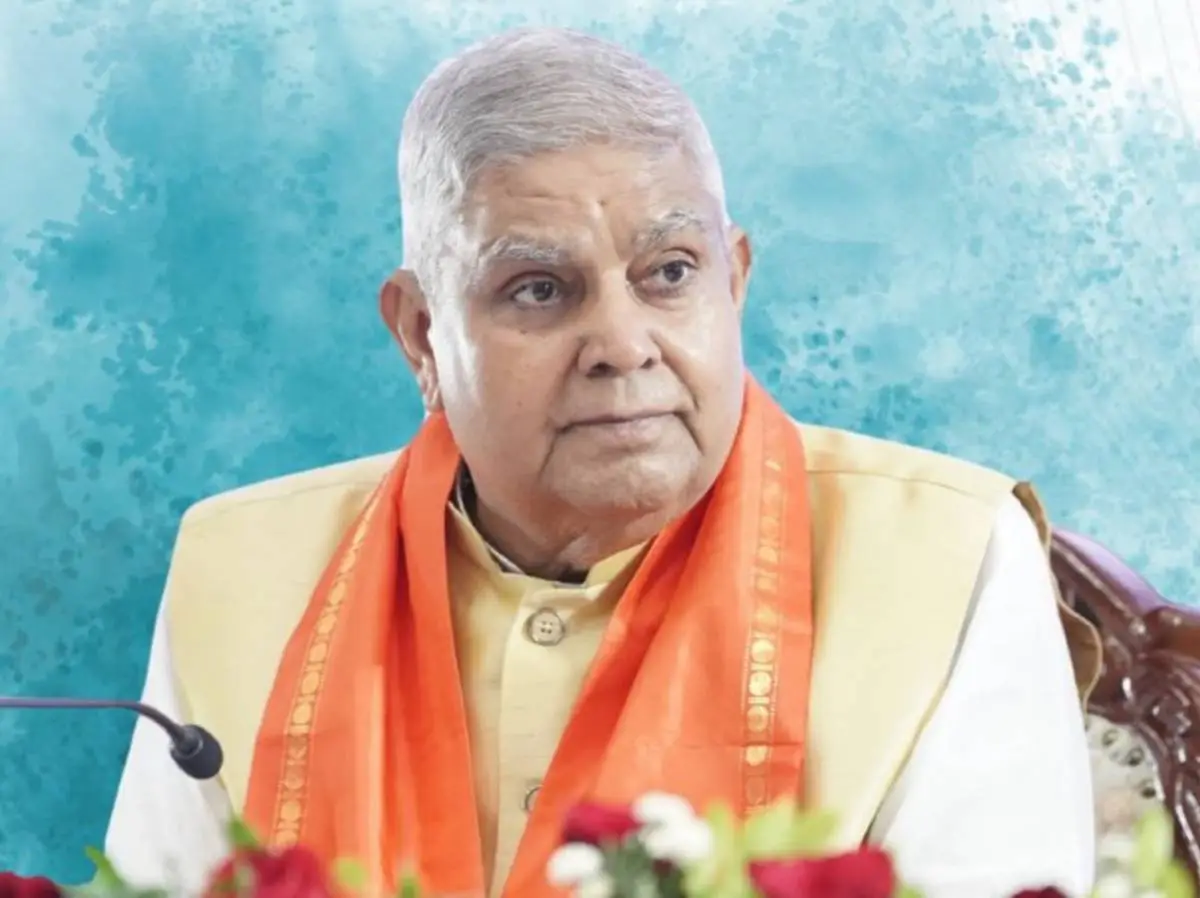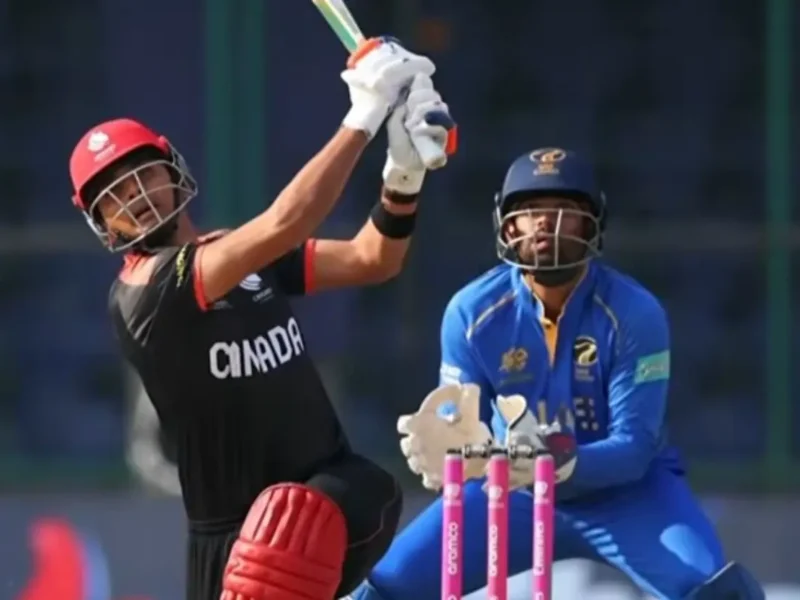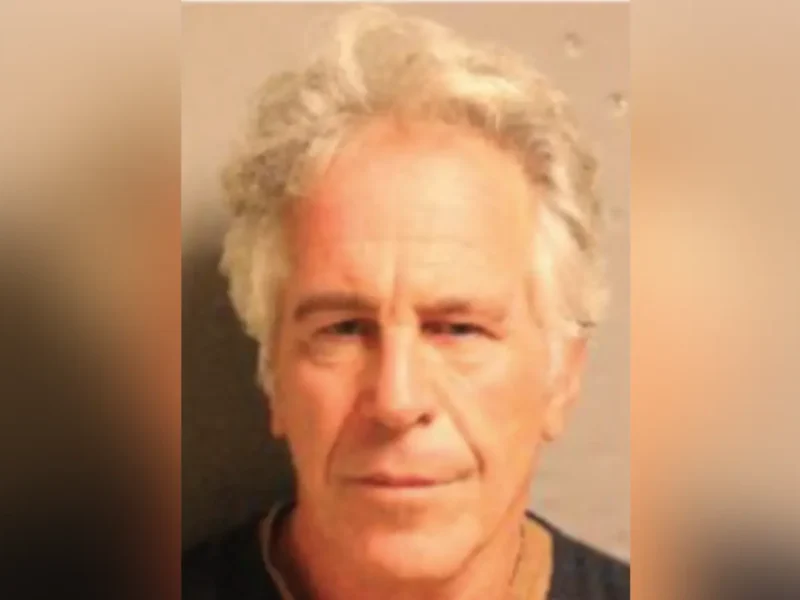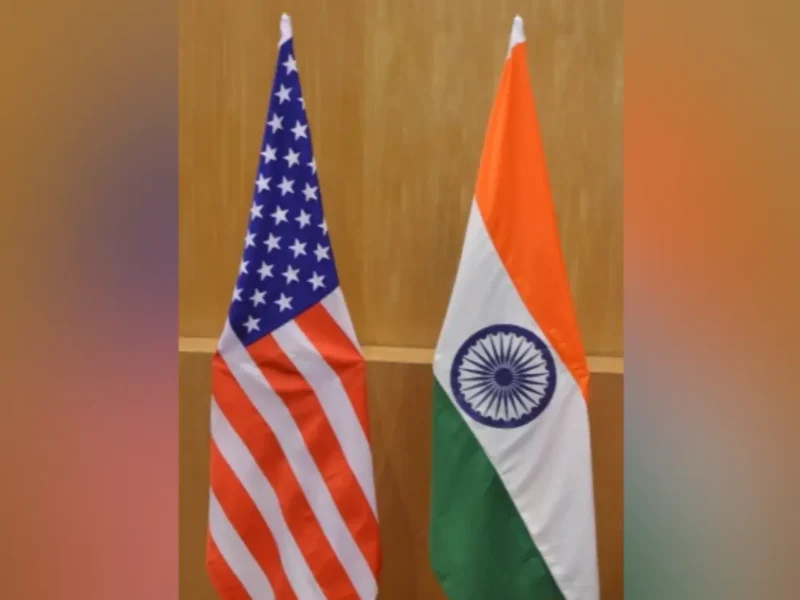India’s Vice President Jagdeep Dhankhar Resigns
NEW DELHI (IANS) – Vice President of India Jagdeep Dhankhar has resigned from office with immediate effect, citing health concerns. In a letter addressed to President Droupadi Murmu, the 74-year-old stated, “To prioritise health care and abide by medical advice, I hereby resign as the Vice President of India, effective immediately.”
The resignation was submitted late in the evening, shortly after Dhankhar concluded a day’s work in the Rajya Sabha, including administering oaths to eight new members. Expressing gratitude, Dhankhar wrote, “Prime Minister’s cooperation and support have been invaluable, and I have learned much during my time in office.”
Dhankhar had been facing health challenges in recent months. He was admitted to AIIMS in March due to cardiac-related issues and fainted during an event at Kumaon University last month. He had two years left in his five-year term, having assumed office in 2022 after defeating Opposition candidate Margaret Alva.
Dhankhar becomes the third Vice President in India’s history to resign before completing his term. His predecessors VV Giri (1969) and R Venkataraman (1987) stepped down to run for the presidency. Unlike them, Dhankhar is expected to exit public life entirely, with no indication of future political plans.
This interregnum in the Rajya Sabha leadership comes at a politically charged moment, coinciding with the Monsoon Session, when legislative activity is traditionally intense. Dhankhar’s absence removes a vocal and combative figure from the Upper House, potentially altering the tone of parliamentary engagement. The Deputy Chairman, though institutionally competent, may adopt a more restrained posture as compared to Dhankhar’s assertive style.
His departure triggers a constitutional process to elect a new Vice President under Article 66 of the Constitution. The Election Commission is mandated to fill the vacancy “as soon as possible,” typically within six months. The new Vice President, once elected, will serve a full five-year term.
In the interim, the Deputy Chairman of the Rajya Sabha will preside over Upper House proceedings. However, this is strictly a procedural role and does not confer the title or powers of Acting Vice President.
The vacancy comes at a politically sensitive time during the Monsoon Session, when Parliament typically sees heightened legislative activity. Dhankhar’s absence is expected to impact the tone of debate in the Rajya Sabha, where his combative approach had become a hallmark.
The upcoming election provides the ruling National Democratic Alliance (NDA) with an opportunity to signal its legislative priorities ahead of the 2026 general elections. Whether the next Vice President continues Dhankhar’s assertive legacy or represents a strategic shift will be closely watched.
For the Opposition, the moment offers limited scope to influence the outcome but may allow room to advocate for a more neutral figure. Despite being numerically outmatched, their response to the vacancy could shape future dynamics in the Upper House.
As Parliament enters a phase of transition, the choice of Dhankhar’s successor is expected to have lasting implications—not only for legislative conduct but for the evolving character of India’s highest constitutional offices.





JAYANANDA HIRANANDANI
/
The way the Parliament runs, is indeed stressful for the Chair.
July 21, 2025The few videos that I have seen on proceedings of the parliament are revealing. While someone is giving a speech, some members are talking amongst themselves and not paying attention. In school, the students are taught not to talk with each other when the teacher is speaking. It will be surprising if MPs do not know this. Mahatma Gandhi’s non-cooperation movement has had far reaching effects. Gandhiji was a saint and he expected others to rise to his high level. As most people are far from this, it has bred indiscipline and lawlessness. Outside the parliament, the various agitations like the Farmers agitation and against CAA are good examples of the many other ones. A good democratic approach to this would be what Charles Bradlaugh did in Britain. Being an atheist, he refused to take oath as an MP praying to God. The Wikipedia says, “In 1880, Bradlaugh was elected as the Liberal MP for Northampton. His attempt to affirm as an atheist ultimately led to his temporary imprisonment, fines for voting in the House of Commons illegally, and a number of by-elections at which Bradlaugh regained his seat on each occasion. He was finally allowed to take an oath in 1886. Eventually, a parliamentary bill which he proposed became law in 1888, which allowed members of both Houses of Parliament to affirm, if they so wished, when being sworn in. The new law resolved the issue for witnesses in civil and criminal court cases. ” The elected MPs and MLAs supporting the agitations of the Farmers, anti-CAA and others, should have resigned and on the resulting by-elections should have established the popular support for causes they stood for. Many will not do this as they may loose the by-elections as they would loose the benefits.’